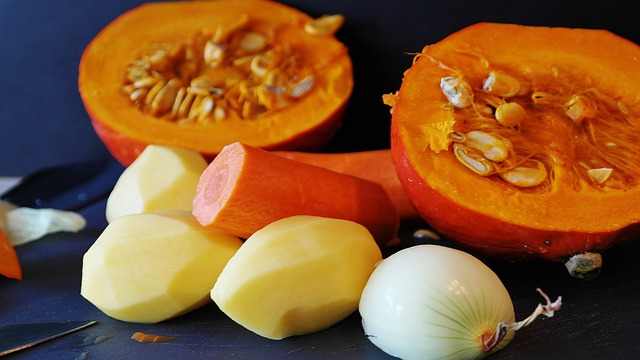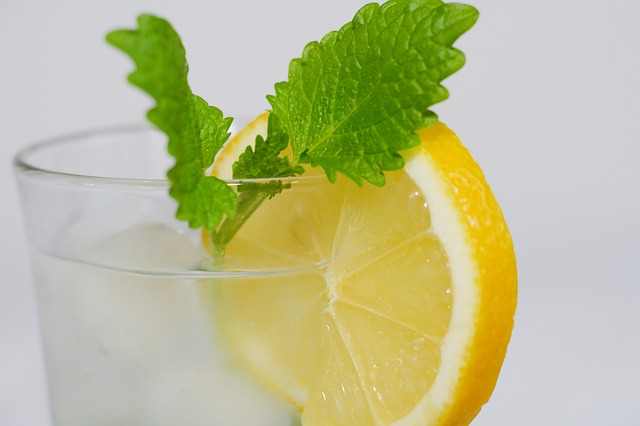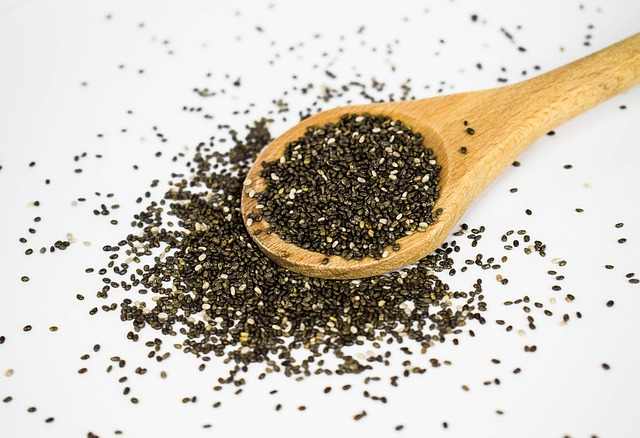Orange poop is a problem possible in both adults and children. It can have a yellow or red tint to it, and may be accompanied by stomach pain. Here’s what causes of orange stool, red yellow watery stool, orange feces in babies, adults and the remedies.
Causes of orange poop
You might not be very much enthusiastic on watching the stool after having a bowel movement, but it is able to provide a person with lot of information about the digestive system’s health. For example, the color of stools can provide you with an idea about a digestive health.
- If it contains an orange coloration, then it might be brought about by eating several carrots.
- But, it can show a health condition also. The following are some of the causes that might lead to having an orange poop.
1. Food Preferences

Eating foods that have beta carotene in very large quantities such as carrots, pumpkins and also apricots everyday can lead to a person to have orange stools. This is not a matter of concern. In fact, beta carotene foods contains an ample amount of Vitamin A and are very much vital for the eyesight.
2. Too Much Preserved Food
Preserved foods such as the jellies, artificial fruit juices as well as the soft drinks have artificial colorants.
- The body is not usually able to absorb or even break these particular artificial colorants and therefore has to flush them when they are still in their original form.
- This leaves your stool with an orange color.
- If you take a lot of preserved food, then you may have to contend with orange poop.
3. Large Quantity of Escolar
Eating a lot of Escolar, which is a type of fish that contains a large quantity of fat, can lead to orange stools also. The reason for this is that fat that is in Escolar is very much indigestible for the body and is flushed out the same way it is.
The reason for the fat that is in Escolar is due to the fact that it has a digestive problem that normally stops the breakdown of waxes that form a very large part of the diet. So this wax is usually stored in Escolar’s flesh as oil which is the reason why it so sticky to eat.
4. Digestion Problems
Having orange stools can be an indication that the food that is being eaten is not interacting with the bile salt or even is not being treated with it at all before excretion. Bile which is usually yellowish green in color plays a very important role in turning of the stools to color brown by reacting with the enzymes that are in the bowel.
Lack of bile absorption may also be put down to the low production of bile that is in the body which might be an indication of gallstones, cysts or even the tumors. It is also able to be put down to the quick passage of the stool through the body also, which is an indication of short bowel syndrome and irritable bowel syndrome.
5. Gastroesophageal Reflux Disease (GERD)
Gastroesophageal Reflux Disease is a health condition that is characterized by some heartburn, chest pain and also the sore throat. In this particular condition, the bile usually reaches up to the throat through the esophagus. This leads to the bile to be away from the digesting foods as it is on the way out of the body through the throat.
6. Certain Supplements
Supplements that have a lot of amounts of Vitamin A can lead to orange stools. Moreover, antacids that have aluminum hydroxide as an ingredient may lead to orange poop also. Therefore, if you are having orange poop, you must check the supplements and also the antacids.
7. Parasites
Parasites are also the causes of the orange poop. There are several parasites that are known to change the color of the stool. If the parasites are making to experience an orange poop, then you are going to have a lot of nausea, diarrhea and also the vomiting.
8. Underlying Diseases
Gallstones normally block the bile ducts and might therefore lead to orange poop. Crohn’s Disease is an inflammatory condition that usually affects the bowel. Besides, short bowel syndrome all can lead to your orange poop.
Red orange poop or orange yellow stool
Orange poop can be very much startling as it is not a color you anticipate the poop to be. Even green poop is common than the orange poop. But, orange poop isn’t a cause for concern and is able to resolve itself on its own.
On the other hand, it could be an indication of something that is much serious, so it’s vital to understand the period that you have been experiencing a red orange poop, together with other factors that can assist you to narrow down on the exact reason. The common causes of red orange poop are as outlined below;
Causes of red orange poop
Some foods: Poop is the waste that is released from the body, and a lot of it is has things that we eat. For this given reason, the color of our poop reflect the foods taken. Case in point, red orange poop mainly derives from consumption of foods that are high in beta carotene and also vitamin A.
Foods that can cause orange poop include carrots, pumpkin, apricots, cilantro, and foods that have red orange or even the yellow artificial coloring, fresh thyme, kale, spinach, turnip greens, and also the winter squash.
Preserved foods: Also, another type of food can lead to your poop to look more red orange than being brown. These are foods like the jellies and also the artificial juices and also the soft drinks that have artificial colors.
Although eating of the preserved foods isn’t very much harmful, consuming of the junk food can over time cause health issues such as being obese and even the liver problems. In this given case, red orange poop may be a sign that you are required to start eating healthier.
Digestive problems: Aside from the food choices, red orange poop may at times an indication for the digestive problems.
Parasites: To understand if a parasite is the reason behind a red orange poop, you will also require to pay a very close attention to the accompanying symptoms, such as the nausea, diarrhea, and also vomiting.
Underlying diseases: Gallstones and short bowel syndrome may lead to the red orange poop. Pay attention to some other symptoms so as to find out if something more serious is happening.
Medical tests: Undergoing some medical examinations, such as the CT scans, or such testing can lead to a red orange poop, but it is able to resolve after a few days after the test is finished.
Liver diseases: Acetaminophen toxicity, cysts, cirrhosis, fibrosis, jaundice, and the primary sclerosing cholangitis are some of the problems that are able to obstruct the release or even stop the production of bile.
Non-health threatening causes:
- Eating a large amount of high beta carotene foods.If you take much of fresh orange juice and take a large amount of carrots, mangoes, and also the pumpkins; then having a soft red orange poop leads to this habit. Beta carotene is also associated with Vitamin A that greatly helps to improve the eyesight. This is not a very health threatening and may wear off after some period of time.
- Eating a lot of preserved foods.If you like to take a lot of preserved and processed foods such as the jellies, artificial fruit juices and also the junk foods; then the artificial colorants also leads to it. The body is not able to break and also absorb artificial colorants so it then flushes it out as waste. These colorants are not a health threatening, but taking of a large amounts of preserved as well as the processed foods may make the body to be prone to the diseases.
Orange poop and stomach pain
Orange diarrhea is normally accompanied by such symptoms as the extreme tiredness, stomach pains, cramps and also feeling of malaise. Weakness may also be felt by the victim. Other indications are dizziness, tearless crying and decreased urination.

Chronic orange liquid diarrhea that lasts for about four weeks makes the victim to dehydrate because of the significant loss of potassium and also the electrolytes. The most common symptoms of dehydration that are usually felt are include irritability, fever, confusion, dry skin, dry mouth and also excessive thirst.
But, if the condition is much sudden without any indications other than watery, loose and off-color stools, it can be brought about by a viral or bacterial infection that have been picked up from contaminated food or even water.
Orange stool in newborn baby, toddler
Meconium: The baby’s first poop is known as the meconium. This is a thick and also the sticky residue that is greenish-black in colour. You’ll never see it again once it is passed.
Food: Milk is normally digested by the stomach acids then it moves into the small intestine. Smaller nutritional elements as well as the water gets absorbed into the bloodstream, undigested elements, such as the fibre, keep moving through.
If the undigested foods continue through the intestine’s small pace, the water then has enough time to be absorbed and what comes out might be very much firm. Alternatively, if things are moving very much rapidly, then the water does not have time to be absorbed and the poo may be very loose.
As the poop moves thorough the intestines it also picks up various digestive juices, bile, bacteria and other chemicals, which usually affects its color and also the smell.
The effects of breast milk vs formula: Breast milk is designed as the perfect food for the babies so it tends to be absorbed much more completely. Sometimes there is very little residue to come out that a baby may not have a poo for several days.
But, most of the breastfed babies pass an orange poo with each feed. Formula-fed babies also tend to have very dark and less frequent poos.
Most crucial, every baby is much different, and there is a wider range of what is said to be a normal poo.
Home remedies for orange stool
If you suffer from orange poop or stool, try the following home remedies to correct the problem.
1. Water
Dehydration is the major reason that leads to constipation so take a lot of water so as to soften and also move the hard stools.
2. Baking Soda
The baking soda also performs for constipation as well as the tummy aches. It re-alkalizes the insides of the stomach, encourages the air to come out and assists things to pass through the gut. Here is the method of how to use baking soda for constipation.
- Mix one teaspoon of baking soda with about 1/4 cup of warm water.
- Drink the mixture very quickly.
- Repeat it, if you don’t find any indication of bowel movement within a period of 4 hours.
3. Epsom Salt
Salt draws water to the hard stools, soften it and then flushes it out. Magnesium that is in salt assists the bowel muscles to contract that makes it easy to pass stool. How you can use it;
- To a cup of water or any other fruit juice, dissolve about 2 teaspoons of the Epsom salt.
- Drink it very quickly.
- If you didn’t observe any indication of bowel movement within a period of 4 hours, take one more dose.
4. Prune Juice
The presence of the sorbitol and large amounts of fiber makes it a very natural laxative that can be used to treat constipation. Sorbitol is not easily indigested that assists it to draw a lot of water as it passes through the intestines. It normally works within few hours.
Process 1:
- Drink a glass of prune juice in the morning and another glass before going to sleep.
- Alternatively, you may take a lot of prunes.
Process 2:
- To a saucepan, add 1 cup prunes, 2 cups of water and 1 tablespoon of lemon juice.
- Bring the mixture to a boil.
- Reduce the heat and then simmer for about 30 minutes.
- Get rid of the from the flame, let it cool down and then drink.
5. Triphala Powder
Triphala powder is normally a combination of, haritaki and vibhitaki. It works as a laxative by stimulating the release of the bile and other secretions that are essential to power the bowel movements.
- Mix 1 teaspoons of the powder in a glass that is full of warm water.
- Drink it on an empty stomach in the morning.
- For added taste, you can also mix it with honey.
- You may drink it daily.
6. Lemon and Salt Water

Lemon flushes out the toxins that are in the stomach and also the small intestine. The high amounts of magnesium normally encourage the contractions of the bowel muscles.
- Squeeze juice of half lemon to a glass that has warm water.
- Dissolve at least 1 teaspoon of salt in it.
- Drink about 3 times a day.
7. Castor Oil
Castor oil is an effective natural laxative that softens the stools and also the stimulated bowel movements within few period of time.
- Consume 1 dessert spoon of castor oil on an empty stomach.
- For a better taste, you can it with orange juice.
Don’t use castor oil for the infants and the toddlers. For kids and also the young children, reduce the amount to a teaspoon. Though it is very much safe to consume for a faster solution but don’t use it for an extended periods.
-
Raisins
Raisins have lots of fiber and they are a laxative. It adds the bulk to the stool and assists in movement of the trapped stools. Adding raisins to the daily diet is able to prevent constipation problems.
- Soak a handful of raisins in water overnight.
- Discard the water and also eat raisins on an empty stomach in the morning.
- Also, you can eat few raisins daily after the meals.
9. Honey
Honey is a laxative that assists to strengthen the digestive system and also stimulate elimination of the hard stools.
Process 1: Honey with some Warm Water
- Mix 1 teaspoon honey in a glass that is full of warm water and drink it.
- For the extra benefits, add 1 tablespoon of apple cider vinegar.
Process 2: Cinnamon and Honey laxative Tea
- Boil a cup of water and then add 1 inch of cinnamon.
- Simmer for 10 minutes and get rid of the flame.
- Let it cool down.
- Strain and add 1 tablespoon honey to it.
- Stir well and then consume it.
- Repeat 4 times a day.
10. Milk with turmeric
This combination normally makes an amazing natural laxative to remove the hard stools that are trapped in the colon.
- Boil cup of milk and also add 1/2 teaspoon of turmeric to it.
- Simmer for about 2 minutes and then remove from the flame.
- Let it cool down and add 1 teaspoon of ghee to it.
- Stir well and then drink it.
- If you didn’t see any improvement in 4 hours, repeat the process.
11. Chia Seeds

It works as an intestinal broom for the intestines and assists in movement of the trapped hard stools.
- Soak 3 tablespoons of the seeds in a cup of water.
- After 20 minutes, drink the solution.
- Repeat the process daily.
12. Psyllium Husk
It is one of the ingredients in most of the over the counter laxatives. The insoluble fiber in it assists the hard stools to soak up the water and also encourage bowel movements.
- Mix 1/2 teaspoon of psyllium Husk in a glass of warm water or milk.
- You may increase the dosage to 2 teaspoons slowly.
- Drink the mixture before going to sleep.
13. Flax Seeds
The mucilage that is present in flaxseeds indicates a laxative property.
- Mix 3 tablespoons of ground flaxseeds in a glass of water and drink it.
- Alternatively, you mix them with some yogurt and eat.
- Repeat 3 times a day, once in the morning and twice before going to bed.
Sources and references
- Everything You Always Wanted To Know About Stool: https://www.verywell.com/what-you-should-know-about-your-stool-1942498
- Orange Poop: http://www.enkivillage.com/orange-poop.html
- What causes orange poop: http://www.belmarrahealth.com/what-causes-orange-poop/
- Soft Orange Poop Diagnosis: Five Causes Why You Have It: https://gastrointestinal-conditions.knoji.com/soft-orange-poop-diagnosis-five-causes-why-you-have-it/
- Colour changes in your baby’s poo: http://www.webmd.boots.com/children/baby/guide/baby-poo-colour-changes
- Home Remedies for Yellow Diarrhea – Loose Stool Treatments: http://homeremedieslog.com/health-topics/digestive-system/diarrhea/yellow/
- 32 DIY Home Remedies for Constipation: http://homeremediesforlife.com/constipation/


